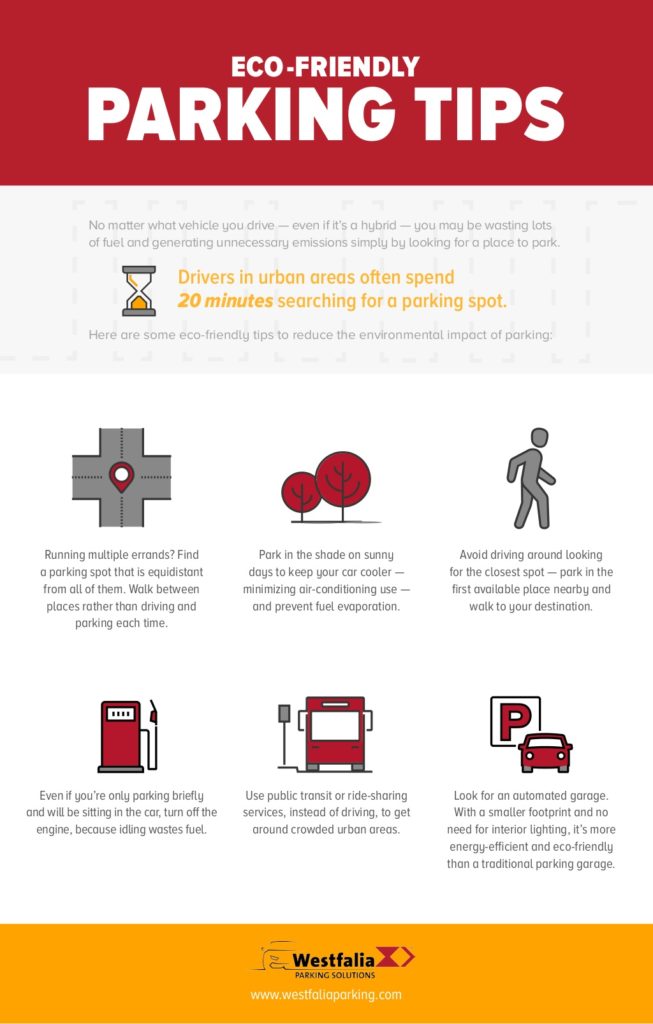
The most time-consuming part of taking your car for a spin might be finding a parking place. Americans spend an average of 17 hours a year (as of 2017) searching for parking on streets, in lots or garages. Though, as you can imagine, finding a parking spot is even more problematic in major U.S. cities. Drivers in the U.K. spend an average of 44 hours a year searching for parking. This search time can take a toll on your schedule, fuel economy, and the environment. The good news is, there are a few ways to save gas and lower your carbon footprint while driving – without investing in the latest hybrid.
Opting for public transportation is a great eco-friendly travel alternative, but that’s not always an option for longer expeditions. If you’re planning a trip with friends, carpooling could help save time and fuel, while ridding the highways of one or two less cars. Keep your car well-maintained to perform at the best of its abilities. If using your trunk for storage, emptying unnecessary baggage can help keep your car from working too hard.
Instead of blasting the air conditioning, open the windows to circulate the air – but be cautious if you’re traveling at high speeds, as it can affect the aerodynamics. On the other hand, the best way to warm up a car is to drive it gently at first rather than cranking up the heater. As tempting as it may be to speed on the highway, sticking to the speed limit can decrease carbon emissions and increase mileage.
Turning your car off and on too much also contributes to unnecessary carbon emissions and vehicle wear. For example, if you linger in a parking spot, even if momentarily, shut off the engine to conserve fuel.
When searching for parking, our first impulse is to find a spot as close to the destination as possible. However, parking at the first available spot and walking to your destination could offer physical benefits and cut your vehicle’s emissions. Reversing into a parking spot that’s not necessarily at the lot’s entrance can save your vehicle energy spent maneuvering when leaving the space. Parking for an easy departure is a smart way to reduce stop-and-go driving. It’s important to never park in restricted spaces, however, or you may find a parking ticket on your windscreen upon your return. It’s possible to appeal parking tickets, but the best way to avoid them is to stick to the appropriate spaces and never park in a bay not intended for you, even if it’s more convenient.
It’s no secret that transportation emissions is one of the largest contributors to global warming gases. Check out our accompanying parking tips that will help save you time, energy and reduce your carbon footprint.
Author bio: Ian Todd is Director of Automated Parking Systems for Westfalia, a York, Pennsylvania-based manufacturer. Todd has more than 15 years of experience in automated parking systems in both Europe and the Americas, where he has held roles in product development, project management, marketing, and business development and sales.